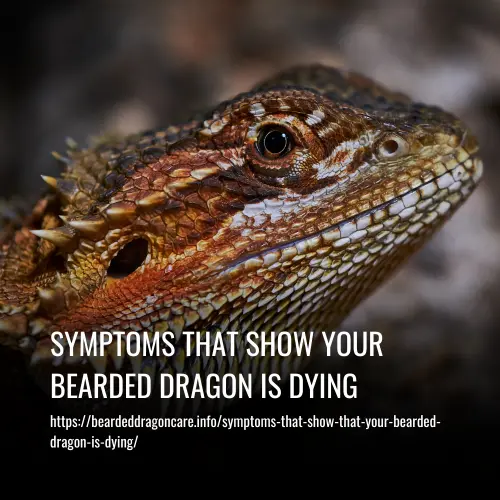Yes, you can be allergic to bearded dragons. In fact, most people who get bitten by a bearded dragon will develop an allergy to the venom within 24 hours.
If you’re thinking about owning a bearded dragon as a pet, make sure you read this before you buy. You may be allergic to them after all!
What Are Allergies?
An allergy is an immune response disorder caused by your body reacting too strongly to certain substances called allergens.
These substances can cause allergic responses ranging from mild irritation to severe inflammation.
Common allergens include pollen, dust mites, pet dander, mold spores, cockroaches, tree nuts, peanuts, shellfish, milk, eggs, soybeans, wheat, fish, citrus fruits, tomatoes, strawberries, celery, carrots, lettuce, onions, potatoes, corn, peas, beans, lentils, spices, perfumes, chemicals, medications, latex, and cosmetics.
Are Bearded Dragons Hypoallergenic?
People with bad allergies should consider getting a bearded dragon instead of a snake or lizard. These animals are hypoallergenic, meaning that they don’t produce as many allergy-producing particles as other types of reptile pets.
This makes them a great option for people with bad allergies. You won’t have to worry about your furniture being covered in fine hairs, and you won’t have to worry that your pet might bite you.
These animals are also friendly, social, and intelligent. They enjoy playing games, eating treats, and interacting with humans. And they’re cute!
Do Bearded Dragons Cause Allergies?
While bearded dragons may not cause as many allergies compared to other pets, there are still some risks associated with owning one.
Some people find that their allergies become worse after adopting a bearded dragon, especially if they already had allergies before getting a pet.
If you’re experiencing allergic reactions, you should determine which specific allergens might be causing them. Then, you can take steps to minimize exposure to those allergens.
For example, you can keep your bearded dragon inside during allergy season, or you can limit its access to pollen-producing plants. You can also consider using a dust mask to prevent your bearded dragon from inhaling airborne particles.
How Do Bearded Dragons Cause Allergies?
Bearded dragons can cause allergies if they shed their skin. You should be careful to clean up after them and remove any loose skin before allowing them access to your home. Also, try to avoid petting and handling them, since they may transfer bacteria and viruses to you.
Other factors that can contribute to allergy symptoms in bearded dragons include:
- Petting and handling
- Food and water bowls
- Cleaning supplies
- Toys
- Bedding
- Clothing
- Furniture
- Carpets
- Dust mites
- Air quality
How Can I Prevent Allergies From A Bearded Dragon?
Beardies are prone to allergies because they live in close proximity to many types of pests and plants. Keeping your beardie indoors reduces his exposure to these allergens, which helps prevent him from developing an allergy.
Keep your beardie away from places where he might encounter insects, rodents, birds, cats, dogs, and other pets. These places include barns, kennels, groomers, pet stores, and any place where he could pick up fleas, ticks, or other pests.
Make sure that your beardie stays away from carpets, bedding, furniture, clothes, toys, houseplants, and anything else that may contain allergens.
Bathing your beardie regularly removes bacteria, viruses, and other parasites. Bathing should occur at least once every week.
Wash your beardie thoroughly to remove dirt and grime.
Finally, if your beardie develops an allergy, talk to your vet about treatment options. Some medications can be given orally; others can be applied topically.
Should You Adopt A Bearded Dragon If You Have Allergies?
Bearded dragons are great pets, but if you do decide to adopt one, be aware that they can be extremely sensitive to humans. They can suffer from severe skin rash and other allergic reactions.
Make sure that your pet looks well fed and isn’t too thin. Avoid buying one that has been kept in bad condition.
- Keep him indoors. Don’t let him roam free outside. Keep away from allergens.
- Bathe him regularly.
- Feed him a diet rich in proteins.
- Provide plenty of fresh, clean water.
- Keep him away from insects and rats.
- Monitor his temperature.
- Watch closely for signs of disease.
If you see any signs listed above, then go to the vet immediately.
FAQs
Can You Get Sick From A Bearded Dragon?
Yes, bearded dragon owners need to be aware that their pets may carry Salmonella germs which can spread and cause them to get sick.
Can You Get A Rash From A Bearded Dragon?
Yes, you can get an allergy from touching a bearded dragon’s skin. However, if that isn’t true, it could have been because of its claw.
Can Bearded Dragons Be Allergic To Household Pets?
There is no evidence or proof that reptiles can be allergic to other animals. However, if you own a bearded dragon, you may want to keep an eye out for signs of allergy.
If something doesn’t seem right, take your bearded dragon to the vet for an examination.
Can Bearded Dragons Be Allergic To Humans?
Bearded dragons are reptiles, and they’re not known to be allergic to humans. However, if your bearded dragon shows signs of being ill or injured, it may be suffering from a medical condition. You should consult your vet if you notice anything unusual.
Your vet will examine your bearded dragon and determine whether it needs treatment. He or she might recommend medication or surgery depending on the situation.
Visit your vet if you notice any issues with your bearded dragon.
Can Bearded Dragons Be Allergic To Certain Foods?
Beardies don’t seem to be allergic to any type of food, but they do have specific dietary needs. Feed them only foods that were recommended by a vet.
Can You Get A Rash From A Bearded Dragon?
Yes, you can get an allergy from touching a bearded dragon’s fur. However, if that isn’t true for you, then it could have been caused by their claw.
Conclusion:
Bearded dragons are actually quite friendly animals that are generally docile and non-aggressive. However, if you happen to be allergic to bearded dragons, then you might need to avoid them altogether. This article will explain why you shouldn’t be afraid of bearded dragons and what you can do instead.


